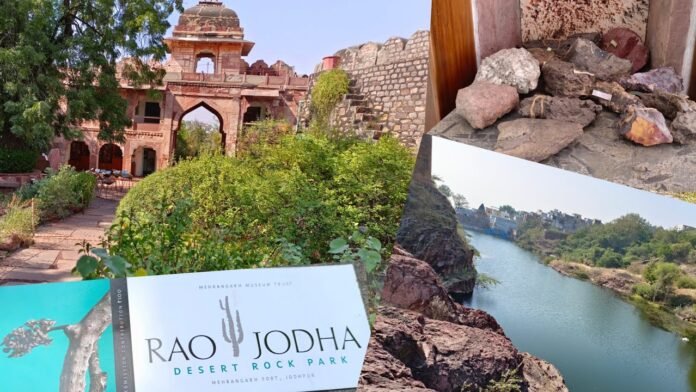Rao Jodha Desert Rock Park is a unique and beautiful place located near Jodhpur, Rajasthan. It showcases the rich diversity of plants that thrive in arid conditions. This park is not only an excellent spot for nature lovers but also provides an opportunity to learn about the ecosystem of desert regions. In this article, we will explore some of the fascinating plants you can find in this remarkable park.
The Importance of Native Flora
The park was created to restore and conserve the native plant species that were lost due to urbanization and development. The efforts to bring back these plants have been successful, and visitors can now enjoy a variety of species that are well-adapted to the harsh desert environment. The diverse flora contributes to the overall health of the ecosystem, providing habitat and food for local wildlife.
Common Plant Species
- Acacia Trees: One of the most common plants in Rao Jodha Desert Rock Park is the Acacia tree. These trees are well-known for their ability to survive in dry conditions. The Acacia’s leaves are small and feathery, reducing water loss, while its deep root system helps it access underground water sources.
- Cacti: Various species of cacti can be found throughout the park. These plants have thick, fleshy stems that store water, allowing them to survive long periods without rainfall. Their unique shapes and sizes add an interesting visual element to the landscape.
- Desert Shrubs: Shrubs such as the desert broom and indigo bush are common in the park. These plants are typically low to the ground and have adapted to conserve moisture. Their small leaves and tough exterior help them withstand the harsh sun and dry winds.
- Succulents: Many succulent plants thrive in the park’s arid environment. They have specialized tissues that store water, enabling them to survive in extreme conditions. The unique shapes and vibrant colors of these succulents make them a favorite among visitors.
- Herbs and Grasses: A variety of herbs and grasses can also be found in Rao Jodha Desert Rock Park. These plants play an essential role in the ecosystem, providing ground cover and preventing soil erosion. Some of these species have medicinal properties and are used in traditional medicine.
Adaptations to Desert Life
Plants in Rao Jodha Desert Rock Park have developed unique adaptations to survive in the harsh desert climate. For instance, many have deep root systems that help them access water stored deep in the ground. Others have small or modified leaves that minimize water loss through evaporation. Some plants even have special coatings or waxy surfaces to protect them from intense sunlight.
Visiting the Park
Exploring Rao Jodha Desert Rock Park is a wonderful experience for nature enthusiasts and anyone interested in learning about desert ecosystems. The park offers well-maintained trails that allow visitors to observe the diverse plant life up close. Guided tours are available, providing insights into the unique adaptations and survival strategies of desert plants.
When planning a visit, consider using local transportation options, such as Jodhpur taxi service, to easily reach the park. These services provide a convenient way to explore the area and ensure you don’t miss out on other attractions in Jodhpur. Utilizing Jodhpur local taxi services allows you to enjoy a comfortable ride while taking in the beautiful scenery.
Conclusion
Rao Jodha Desert Rock Park is a hidden gem that highlights the resilience of desert flora. The variety of plants found in this park showcases nature’s ability to adapt and thrive in challenging conditions. By visiting the park, you can appreciate the beauty of these plants while gaining a deeper understanding of the desert ecosystem. Whether you are a nature lover, a photographer, or simply curious about desert life, a trip to this park promises an enriching experience.



